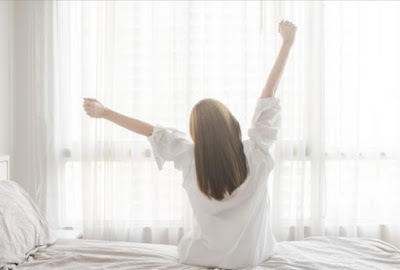7 tips for Minimalism and 5 amazing benefits for mental clarity🍁
Moderation and Mental Clarity: How Less Can Truly Be More
In today’s busy world, many people feel overwhelmed by clutter—both in their minds and their surroundings. We are constantly bombarded (influx) with information, possessions, and responsibilities, which can cause stress, anxiety, and a lack of focus.
This is where **minimalism** comes in. It’s a lifestyle that values simplicity and purpose. Minimalism isn’t just about having a tidy home—it’s also about clearing your mind. By focusing on what truly matters, minimalism can help you feel more at peace and think more clearly.
In this blog post, we’ll explore:
- What minimalism really means
- The psychological benefits of minimalism
- How minimalism improves mental clarity
- Practical steps to adopt a minimalist lifestyle
What Is Minimalism?
Minimalism is often misunderstood as simply owning fewer things or living in a stark, empty space. However, true minimalism is about intentionality —keeping only what adds value to your life and removing the rest.
As Joshua Fields Millburn and Ryan Nicodemus of *The Minimalists* say:
"Minimalism is a tool to rid yourself of life’s excess in favor of focusing on what’s important—so you can find happiness, fulfillment, and freedom."
Minimalism can apply to:
- Physical possessions (clothes, furniture, gadgets)
- Digital clutter (emails, apps, social media)
- Mental load (obligations, toxic relationships, negative thoughts)
By reducing excess, you create space—both physically and mentally—for what truly enriches your life.
The Psychological Benefits of Minimalism
Research has shown that clutter and excess can negatively impact mental health. Here’s how minimalism helps:
1. Reduces Stress and Anxiety
- A study published in Personality and Social Psychology Bulletin found that cluttered homes lead to higher cortisol levels (the stress hormone).
- Fewer possessions mean less visual noise, leading to a calmer mind.
2. Enhances Focus and Productivity
- The Zeigarnik Effect suggests that unfinished tasks and clutter occupy mental bandwidth.
- Minimalism helps eliminate distractions, allowing better concentration on important tasks.
3. Encourages Mindfulness and Intentionality
- By being selective with what you own and do, you cultivate mindfulness—living in the present rather than accumulating for the future.
4. Improves Decision-Making
- Decision fatigue occurs when we’re overwhelmed by too many choices.
- Minimalism simplifies daily decisions (fewer clothes = easier outfit choices).
5. Boosts Happiness and Fulfillment
- A Harvard study found that experiences bring more lasting joy than material possessions.
- Minimalism shifts focus from owning things to valuing experiences and relationships.
How Minimalism Leads to Mental Clarity
Mental clarity is the ability to think clearly, make decisions confidently, and maintain emotional balance. Here’s how minimalism supports it:
1. Decluttering the physical space = Decluttering the Mind
- A tidy environment promotes a calm and organized mind.
- Marie Kondo’s KonMari Method (keeping only what "sparks joy") helps align surroundings with inner peace.
2. Fewer Distractions = More Mental Bandwidth
- Constant notifications, unused items, and unnecessary commitments drain cognitive resources.
- Minimalism helps eliminate digital and physical distractions, freeing up mental energy.
3. Intentional Living = Greater Purpose
- Instead of chasing trends or societal expectations, minimalism encourages living by your values.
- This leads to greater self-awareness and alignment with personal goals.
4. Financial Freedom = Reduced Stress
- Consumerism often leads to debt and financial anxiety.
- Minimalism promotes conscious spending, reducing money-related stress.
5. Better Relationships = Emotional Well-being
- Letting go of toxic relationships and focusing on meaningful connections improves emotional clarity.
Practical Steps to Embrace Minimalism for Mental Clarity
1. Start Small: The 30-Day Minimalism Challenge
- Remove one unnecessary item each day for a month.
- Gradually expand to bigger decluttering projects.
2. Adopt the 90/90 Rule
- If you haven’t used something in the past 90 days and won’t need it in the next 90, consider letting it go.
3. Digital Detox
- Unsubscribe from unnecessary emails.
- Delete unused apps and limit social media usage.
4. Practice Mindful Consumption
- Before buying something, ask:
- Do I really need this?
- Will it add value to my life?
5. Focus on Experiences Over Possessions
- Invest in travel, learning, and relationships rather than material goods.
6. Create a Capsule Wardrobe
- Reduce decision fatigue by keeping only versatile, favorite clothing items.
7. Set Boundaries
- Learn to say no to unnecessary commitments.
- Prioritize activities that align with your values.
Final Thoughts: Less Really Is More
Minimalism isn’t about deprivation—it’s about freedom. Freedom from clutter, stress, and societal pressures. By embracing minimalism, you create space for mental clarity, deeper relationships, and a more fulfilling life.
As Leonardo da Vinci once said:
"Simplicity is the ultimate sophistication."
Are you ready to simplify your life and sharpen your mind? Start small, stay consistent, and watch how minimalism transforms your mental clarity.
What’s the first thing you’ll declutter today? Let us know in the comments!




Comments
Post a Comment